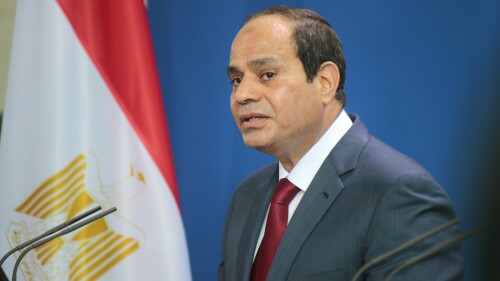Like clockwork, Secretary of State Mike Pompeo’s recent observation that “the establishment of Israeli civilian settlements in the West Bank is not, per se, inconsistent with international law” was immediately denounced by the Jewish Left.
The head of the Reform movement in North America, Rabbi Rick Jacobs, said the US government’s new position on Israeli settlements will undercut the fight against BDS and the delegitimization of Israel in the US, specifically on college campuses.
It is not clear when Rabbi Jacobs was last on a campus, but the debate on North American college campuses is not about the so-called “occupation” but about whether Israel has a right to exist, period. Pro-BDS groups, including “Jewish” ones, are talking about the illegitimacy of the 1949 armistice lines, not those of 1967.
Moreover, a recent survey conducted by Ron Hassner at the University of California, Berkeley shows that most students who care strongly about the “Israeli occupation of Palestinian territories” do not have knowledge of even basic facts on the subject.
Rabbi Rick Jacobs says the US government’s position on Israeli settlements “will make it much more difficult to prevail” against BDS. |
Jacobs’s lack of understanding speaks to the divergent lexicon of the conflict, and more pointedly to the growing split between American Jews and Israelis. In many “progressive” circles there is little to no understanding of what areas are even in dispute; witness the continued claims that Gaza is “occupied” by Israel. For the BDS movement, everything Israeli, including Haifa and Tel Aviv, is a “settlement” and hence “illegal.”
Far more than American policy, it is the language of “occupation” that plays a key role in what has become the religion of the Israeli-Palestinian conflict. The main feature of that religion is the Palestinian claim that their (alleged) territories are “occupied” by Israel, regardless of where they are located on the map, much less in any legal sense under international law. The mantra of “occupation,” and the demand that Israel be shunned until the “occupation” is ended—meaning the time when Israel is dissolved by the implementation of the Palestinian “right of return"—is the key demand of the Palestinians and the BDS movement.
... Naturally, Rabbi Jacobs continues to echo the left wing mantra that “The US is giving a green light to settlements and settlement expansion. This could also be interpreted as a first step toward supporting any Israeli annexation efforts.”
Interpreting the Arab-Israeli conflict as a territorial dispute ignores its religious foundations.
Jacobs’s interpretation characterizes the entire Arab-Israeli conflict as a territorial one, ignoring its religious foundations and thus all the many ingredients necessary for peace to actually come about. The relegation of the conflict to a matter of land alone is the reason why all peace proposals over the past century have been rejected by the Palestinians.
The essence of the two-state placebo is the belief that peace will come when there are two states living side by side. But the reality is that the resilience of Jewish-Israeli survival has been overshadowed by the false Arab-Palestinian notion of being “occupied” and “robbed” of their true destiny by religiously ordained supremacy.
Consequently, Israel is the “oppressor.” The Palestinian concept demands that the “occupation” remain the root cause of all that society’s problems, self-imposed and otherwise, from social and economic woes to terrorism. The fact that the Trump administration decided to acknowledge historical fact—that the 1949 boundaries were neither sacred nor a permanent border and were always subject to adjustment—has been known for over five decades. This reality will not change no matter how falsely the facts are described on campus or by the Reform movement.
Asaf Romirowsky is executive director of Scholars for Peace in the Middle East (SPME), a senior non-resident fellow at the BESA Center, and a fellow at the Middle East Forum.









